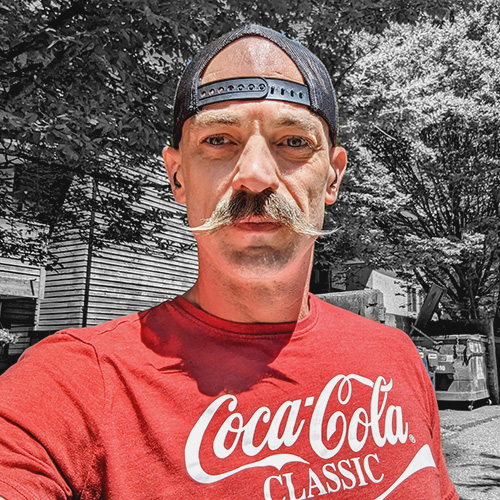
Bryan's Story
Bryan shares how gaining a better understanding of his ADHD and pursuing different treatment options helped him manage his anxiety and depression.

Bryan shares how gaining a better understanding of his ADHD and pursuing different treatment options helped him manage his anxiety and depression.
"Don't force feelings down when they do come. You're a man, not a robot."
About Bryan:
 My name is Bryan. I’m a 40-year-old millwright with ADHD. I’m currently working with my company’s HSE corporate lead as my mentor and I work as an event planner with the Vancouver Facial Hair Club.
My name is Bryan. I’m a 40-year-old millwright with ADHD. I’m currently working with my company’s HSE corporate lead as my mentor and I work as an event planner with the Vancouver Facial Hair Club.
I was diagnosed with ADHD as a child back in the 90s.
I split up with the girlfriend I was living with in July of 2020. As we all remember, this was a dark time. I moved into a 2 bedroom apartment by myself, with no job. I couldn’t find work, I wasn’t seeing my kids very much due to money, and I was lonely.
In December of 2020, I moved to Vancouver for work. I didn’t last very long at this job. ADHD sometimes makes us super impulsive. These impulses have often caused difficulties in my life. I was able to get another job immediately, and didn’t even lose any days worth of pay.
The new job was stressful. It was a chaotic environment with little pre-planning, poor tooling, and very little direction from management. In addition, the expectations were so low, that I wasn’t feeling any satisfaction at the end of my day. I would go home and sit on the couch and perseverate (repeatedly getting stuck on something) about how much I hated it and how terrible it was.
Though I had tried counselling before and found it helpful to a certain degree, the real moment of change was when I tried hallucinogens for the first time.* Though not for everyone and something that people should take caution with, microdoses, for me, were something that immediately lifted the boat anchor that stopped me from moving forward. I’d had suicidal ideations, but never went any further than that. After my first anxiety treatment, I felt an entire world’s worth of weight lifted off my shoulders.
Two weeks later, I felt much more clearheaded and wanted to take more charge of my recovery. I called my doctor and asked to start on a new ADHD medication that I hadn’t tried yet. I found that I could think, I could focus on a thought for more than 10 seconds without getting lost or confused. It was as if I was a five-year-old learning how to exist in the world all over again.
Being kinder to yourself
Learning
Trying new things
Reaching out
– Bryan, East Vancouver, BC, Canada
* Note that the use of psychedelics for mental health is an ongoing area of research. Given the limits to current research, it is best to proceed with caution and discuss options with a mental health professional and learn more about the legality of these substances in your area. Related info: Psilocybin as a Treatment for Depression.
Move for something that matters! Between June 1–15, walk, run, bike, or hike for men's mental health.
Let's Step Up for our dads, brothers, partners, sons, uncles, friends, co-workers — and ourselves.